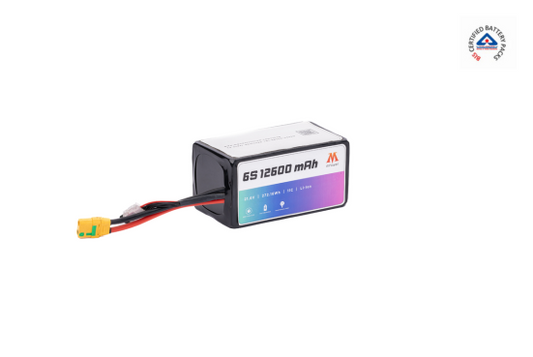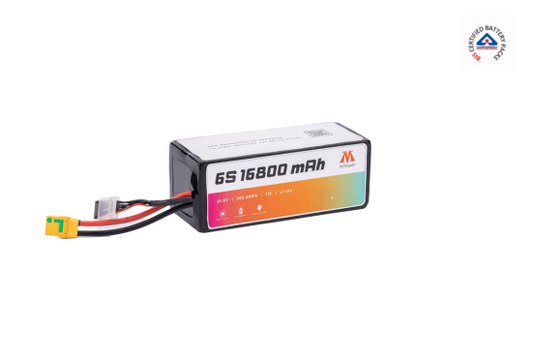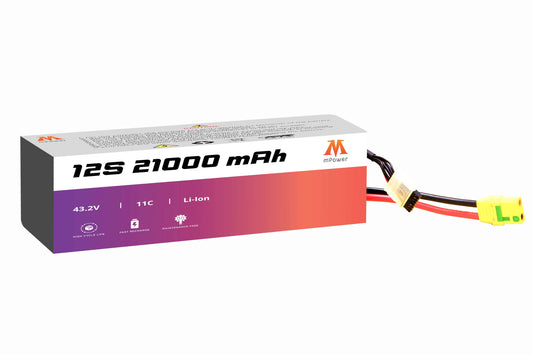
The drone industry in India is poised for significant transformation with the introduction of the 2024 drone regulations. These new rules aim to streamline drone operations, enhance safety, and foster innovation within the sector. One area that is expected to see a substantial impact is battery technology. As the new regulations take effect, drone manufacturers and operators will need to adapt to meet the updated requirements. In this blog, we will explore how the drone rules in India 2024 will influence battery technology for drones and highlight how mPower batteries can play a pivotal role in this evolving landscape.
Overview of Drone Rules in India 2024
The 2024 drone regulations in India are designed to address several key aspects of drone operation, including safety, security, and efficiency. Some of the critical changes include:
Enhanced Safety Standards:
Stricter guidelines on drone construction, including battery safety and performance.
Extended Flight Times:
Regulations encouraging longer flight durations for commercial drones, necessitating better battery technology.
Environmental Considerations:
Emphasis on environmentally friendly components and disposal methods.
Increased Payload Capacities:
Allowing for heavier payloads, which requires more powerful and efficient batteries.
Registration and Tracking:
Mandatory registration and real-time tracking which could affect battery usage and requirements.
Impact on Battery Technology
The new drone rules in India 2024 will drive several changes in the development and use of drone batteries:
Safety Compliance
The 2024 regulations strongly emphasize safety, including battery safety. This means that drone batteries will need to adhere to stricter safety standards, such as improved thermal management systems, overcharge protection, and enhanced durability. Battery manufacturers like mPower, known for its advanced safety features, are at the forefront of meeting these new safety requirements.
Extended Flight Times
To comply with the new regulations encouraging longer flight durations, drone batteries must offer higher energy densities without significantly increasing weight. mPower batteries, with its advanced energy storage technologies, are well-positioned to provide the extended flight times required under the new rules. These batteries can store more energy in a compact form, allowing drones to stay airborne for longer periods.
Environmental Considerations
The regulations emphasize the use of environmentally friendly components. This will push battery manufacturers to develop more sustainable and recyclable battery technologies. mPower is already investing in eco-friendly battery solutions that minimize environmental impact, making them a suitable choice for operators looking to comply with these regulations.
Increased Payload Capacities
With the allowance for heavier payloads, drones will need batteries that can provide sufficient power without compromising flight stability. mPower batteries are designed to deliver consistent and reliable power output, ensuring that drones can carry larger payloads efficiently. This capability will be crucial for commercial applications, such as delivery services and industrial inspections, where payload capacity is a critical factor.
Registration and Tracking Requirements
The new regulations mandate real-time tracking and registration of drones. This could increase the demand for batteries with better power management systems to support the continuous operation of tracking devices. mPower batteries, known for their efficient power management, will help ensure that drones can meet these requirements without draining the battery excessively.
Challenges and Opportunities
The introduction of the 2024 drone rules in India will present both challenges and opportunities for the drone industry, particularly in the realm of battery technology:
Innovation in Battery Chemistry
To meet the new demands, battery chemistry will be pushed for innovation. Advances in solid-state batteries, lithium-sulfur batteries, and other emerging technologies will be crucial. mPower is actively researching and developing these cutting-edge technologies to stay ahead of the curve.
Cost Implications
While advanced batteries offer numerous benefits, they also come with higher costs. Drone operators and manufacturers will need to balance the benefits of improved performance with the cost implications. mPower aims to provide cost-effective solutions that do not compromise quality or performance.
Regulatory Compliance
Ensuring compliance with the new regulations will require ongoing collaboration between drone manufacturers, battery producers, and regulatory bodies. mPower is committed to working closely with stakeholders to ensure their batteries meet all regulatory requirements and help customers navigate the compliance landscape.
Conclusion
The 2024 drone regulations in India will significantly influence battery technology, driving the need for safer, more efficient, and environmentally friendly batteries. As the industry adapts to these new rules, battery manufacturers like mPower will play a critical role in providing the advanced battery solutions necessary to meet these demands. By offering high-performance, compliant, and innovative batteries, mPower is poised to support the drone industry in achieving longer flight times, enhanced safety, and greater sustainability. As the drone landscape continues to evolve, the advancements in battery technology will be a key factor in unlocking the full potential of drones in India.
Click here to check out mPower batteries.











